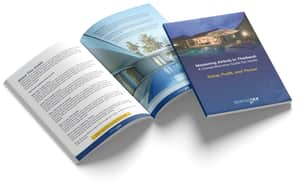Airbnb Dreams Come with Strings Attached
It’s easy to assume that if Airbnb allows you to list your villa, it must be legal. But the truth is more complicated. Many foreign and Thai property owners enter the market unaware that they’re in breach of multiple Thai laws — from zoning and hotel regulations to tax compliance and immigration reporting.
And to the authorities, ignorance is never a defence.
The Tax Risks You Can’t Ignore
If you’re earning rental income from a property in Thailand, you may be breaking the law simply by not registering correctly or failing to file taxes. The Thai Revenue Department is now intensifying its scrutiny, and tax authorities are beginning to scrutinise foreign Airbnb operators closely.
Here’s what’s commonly missed:
- Personal Income Tax (PIT): All rental income earned by an individual in Thailand is subject to Thai personal income tax. This applies even if you’re not a Thai citizen.
- VAT Registration: If your Airbnb rental income exceeds THB 1.8 million per year and you’re operating commercially, you must register for VAT and charge 7% on rentals.
- Corporate Structures: If you’re holding a property you rent though a Thai company, your rental income is subject to corporate tax, withholding tax and potentially VAT — all with their own deadlines and documentation.
The Ownership Trap: Nominee Structures and Revenue Risks
Many foreign villa owners in Thailand set up Thai companies to purchase and hold land — a practice often advised to sidestep restrictions on foreign property ownership. However, this carries serious risks.
Thailand has strict laws against nominee shareholders, where Thai nationals hold shares on behalf of foreigners without real financial control. While this arrangement has been tolerated in some areas for years, it’s now under active investigation.
Recent high-profile cases have shown that authorities are cracking down. Companies found using nominee shareholders face:
- Legal dissolution
- Asset confiscation
- Criminal charges for both foreign and Thai parties involved
Just having a company structure isn’t enough — you also need to use it correctly. That means all STR income must go through the company’s bank account and taxes must be paid under the company, not as personal income.
We regularly see foreign owners who receive Airbnb payments directly to their personal bank accounts while holding the villa under a company. This is a major red flag — it exposes you to audits, back taxes and even accusations of tax evasion.
The Consequences of Non-Compliance
These aren’t just hypothetical risks. There have already been cases where Airbnb hosts have faced heavy fines, frozen income, property seizures and even visa rejections — often linked to unreported income or immigration breaches.
Here are the potential penalties:
- Fines: Up to THB 200,000 for failure to register a business correctly, plus monthly late filing penalties, and VAT non-compliance fines of THB 500–2,000 per return.
- Asset Confiscation: The Thai Revenue Department can freeze or seize assets if it believes you are evading tax.
- Company closure: If you are not filing your corporate tax returns properly, then you are at risk of the DBD closing your company down, which also means seizing the assets within (like the property, land and bank accounts)
- Criminal Charges: Filing false returns or failing to report income can lead to jail time, particularly in cases involving large sums or repeated offences.
- Immigration Scrutiny: If you’re also failing to file TM30 forms or declare guests properly, your visa status can be affected. In some cases, this has led to blacklisting or visa denials.
Why Many Hosts Get Caught
There are several reasons villa operators fall into non-compliance:
- Believing Airbnb collects and pays all relevant Thai taxes (it doesn’t).
- Assuming that not being a Thai tax resident means you don’t have to pay tax on short-term rental (STR) income — but if the income is sourced in Thailand, it’s taxable regardless of your residency status.
- Thinking you can operate as a private owner indefinitely, while legally, you may be running a business.
- Using a company structure for ownership but not treating the property and income received as company assets.
What You Can Do to Stay Compliant
Compliance may sound overwhelming, but it’s far more manageable than facing an audit or legal action.
Here’s what you need to do:
- Register for a Tax ID if you are holding the asset in your name or having dividends paid out to yourself from the company
- File Personal Income Tax Returns using the correct forms and including all assessable rental income if you meet the criteria
- Register for VAT if your income exceeds the threshold, and issue compliant tax invoices.
- File Guest Reports (TM30) within 24 hours of a guest’s arrival.
- Keep Detailed Records — including income, expenses, guest logs, and bank transfers.
- Get Professional Advice — don’t guess or rely on online forums.
We’re Here to Help
At Rental Tax Thailand, a division of Expat Tax Thailand, we specialise in helping Airbnb villa operators navigate the complex Thai tax and compliance landscape.
Don’t wait for a knock at the door. Get your Airbnb operation fully compliant.
We’ll assess your setup, answer your questions, and help you avoid the hidden risks.
